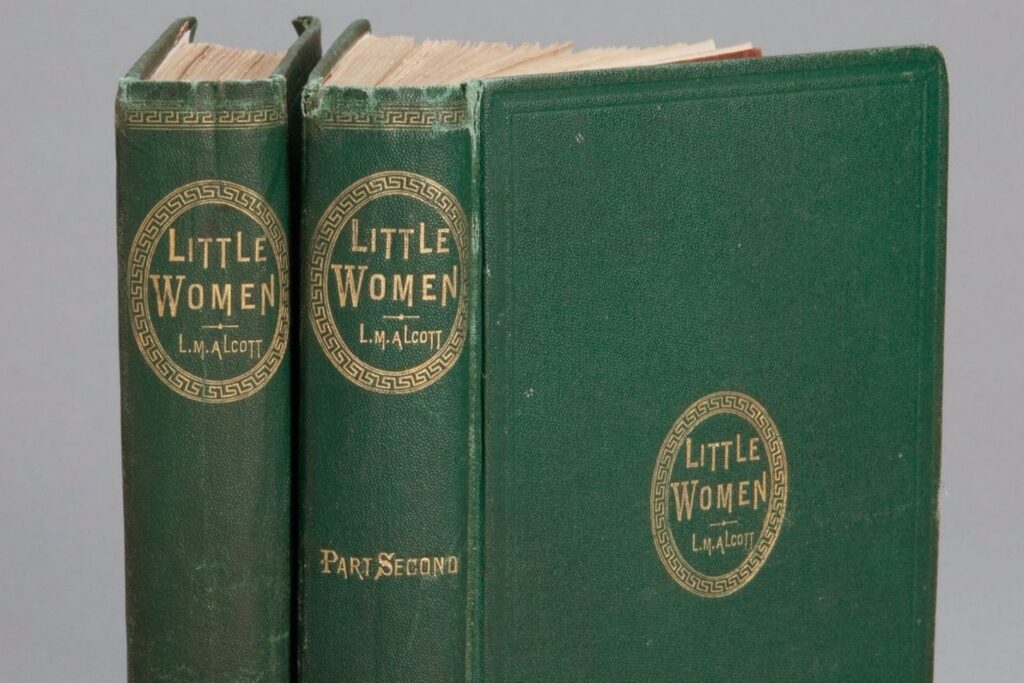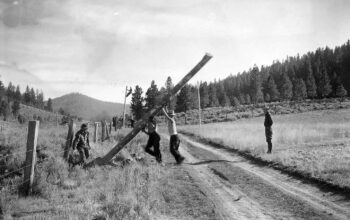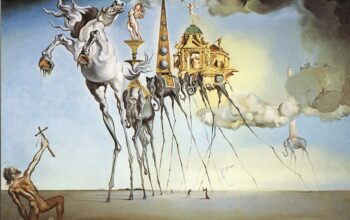Little Women was written more than 150 years ago by an early feminist. Despite its age, the novel contains many important insights on the art of living well for both women and men.

First published in 1869, Louisa May Alcott’s novel Little Women has captivated readers for more than a century and a half. The novel tells the story of the four March girls, Meg, Jo, Beth and Amy, and their struggles to navigate life as young women in mid-19th century American society. Like the works of Charles Dickens, Little Women has in large part remained popular because the vibrance of its characters and the richness of the internal life it displays transcend the time in which it was written, making it an enduring part of American literature and culture.
The life of Louisa May Alcott, an early feminist, serves as an able demonstration of women’s capabilities. During the Civil War, she served as a volunteer nurse, caring for men in appalling conditions. She was also an abolitionist, a social reformer active in the temperance movement, an advocate of women’s suffrage, and of course a successful writer. Although she never married, her family, particularly her sisters and their children, remained of great importance to her, and she stayed close to them until her death in 1888. Little Women, her most famous novel, provides a welcome alternative vision for our modern society obsessed with individualistic self-actualization. A thoroughly grounded work, it is also an insightful commentary on what makes life meaningful and what real human flourishing requires. The life and experiences of the March girls address three themes which continue to be debated today, namely faith, family, and the role of women in society.
I.
One of the most notable characteristics of Little Women is the quiet sense of Christian faith which pervades the story. Louisa May was the daughter of Bronson Alcott, a Transcendentalist, and much of her early life was spent in the Transcendentalist ferment of mid-19th century New England. Her mother was a devout Unitarian, and these influences impacted her deeply. For Alcott, who never joined a church, religion was a deeply private matter of the soul, but one which nevertheless carried broad social and moral obligations.
While Christianity is never the subject of the narrative, the Christian worldview colors the growth of the characters and is reflected in every event which takes place. In contrast to modern secular society, which tends to limit the influence of religion to public worship, the Christianity of the March girls is a constant, interior experience which allows them to find meaning in their relationships with each other and the struggles they encounter. It also gives them moral direction as they strive to better themselves and overcome their sins and weaknesses.
One important framework through which to understand the role of Christian faith in the novel is provided by Bunyan’s book Pilgrim’s Progress, a selection from which appears as a preface to the book. One of the most popular books in colonial America, Pilgrim’s Progress is a detailed allegory of Christian life. It describes the journey of the protagonist as he leaves the city of Desolation and attempts to travel to the Heavenly City; it is the story of the soul on Earth seeking to return to God. In this case, it also serves as part of the structure upon which the story of the March girls is based. Like the titular pilgrim, each of the girls undergoes a journey of development and self-discovery, one which leads them closer to God as they mature.
The novel opens with the girls discussing how they liked to reenact the scenes from Pilgrim’s Progress when they were younger, carrying bundles of clothes around to represent the burden of sin which the pilgrim eventually lets fall as he accepts the sacrifice of Christ during his journey towards the Celestial Realm. This introduction sets up the pilgrim’s journey as an explicit parallel for the events of Little Women, and for the rest of the book each of the March girls refers to their burden, which they struggle to overcome. For Jo, it is a sharp temper and rebellious nature; for Meg, vanity and laziness; for Amy, selfishness; and for Beth, timidity. The copies of Pilgrim’s Progress which the girls receive as Christmas presents serve a dual purpose. In the story, it acts as a guide for each of the girls as they attempt to cast aside her burden. Outside of the story, Alcott uses it as a framing device, at times drawing the reader’s attention to parallelisms through the chapter titles. The various struggles which the girls pass through are thus cast as phases in their moral development, one which mirrors the pilgrim’s educative journey.
Through Pilgrim’s Progress, Louisa May Alcott portrays the life of a faithful Christian as one full of opportunities for spiritual progress. Like all of us, the March girls pass through trials and tribulations, some seemingly trivial and others heart-breakingly severe. But where a Joseph Conrad sees the arbitrariness of an uncaring universe, Alcott portrays circumstances which enable moral growth and redemptive suffering. Like the journey of Pilgrim’s Progress, the events are not arbitrary, they are meaningful steps in obtaining Christlike attributes and coming to a greater understanding of God’s plan. The Christian, as portrayed by Bunyan, must pass through a hostile world in order to return to the Heavenly Kingdom, one filled with deception, monsters, and difficult spiritual terrain. However, these same experiences give him the opportunity to learn how to discern the true from the false, the sweet from the bitter, and to become acquainted with Christlike virtues. They serve as parts of the formation of a truly Christian soul: the only route from the City of Destruction to the Celestial City is through the Valley of the Shadow of Death. There is no shortcut.
The March girls are often pained by their trials, but taking inspiration from both Pilgrim’s Progress and the gentle encouragement of their mother they are able to find meaning in suffering. Thus, the burning of Jo’s precious book manuscript by her sister Amy serves as an occasion for Jo to learn to master her temper and create a stronger relationship with her sibling. It costs Jo dearly, but by the end she has learned to lay down a part of her burden, and recognizes the benefit so painfully gained.
Faithful Latter-day Saints would do well to imitate the kind of Christlike living which is portrayed in Little Women. The moral strength of the March girls comes not simply from being religious, but from living in such a way that their religion comes to touch every portion of their lives and beings in a meaningful way. It requires sacrifice and change from them, but each becomes better and happier for the effort. This integration of morality and religion is further strengthened through religious community and sacraments, which serve to bind men together and bring the power of God into everyday life- features that are unfortunately lacking in Alcott’s Transcendentalism. Even so, the depth of religious commitment portrayed by the novel is something which is necessary for every faithful Christian.
II.
The rich and joyful relationships which characterize the family life of the Marches is one of the great pleasures of Little Women. Perhaps more than any other book in modern American literature, it is an advocate for the happiness which can come from being part of a family that is “founded upon the teachings of the Lord Jesus Christ.” All of the events which take place in the book are viewed from the perspective of family; the personal growth of the March girls would be entirely impossible without the influence of the relationships which bind them to each other and to their parents. Indeed, in a sense the story of Little Women may be described as the growth and development of family, as the individuals which make it up mature, and marriage and friendship bring more people into its sphere of influence. If Christinity forms the moral background of the novel, family is the tie which binds the characters together into a cohesive community and makes their separate lives into a single story.
Family plays a vital role in Little Women as a place where intimate relationships develop as family members serve each other. The March family is not bound together just by blood. Rather, they are primarily bound together by the daily help that they provide to each other. The great love which the March girls display towards each other and their parents is not simple sentimentalism; it is created and reinforced by the hundreds and thousands of small sacrifices made and services rendered to each other. They know their family loves them because they see that love in their actions, and they in return love and demonstrate that love in like manner.
This community of conscious, voluntary interdependence is very different from most modern portrayals of family, which- perhaps not coincidentally- tend to be dysfunctional and disunified. Even in more positive portrayals, the affection which family members show to one another is more often based on some supposed personality compatibility rather than any meaningful service. It is a menagerie of independent individuals, who complement each other not by mutual aid and sacrifice but by the simple act of being different. “He likes red and I like blue and our differences complete each other” is perhaps a flippant and overly simplistic way of summing up the modern understanding of love both familial and romantic, but that is nevertheless the tendency.
Apart from a sphere where physical and social interdependence nurture love, however, the family in Little Women plays another vital narrative role, serving as a place for moral development. Each of the March girls has her own foibles and weaknesses, and each makes mistakes (sometimes serious ones). However, the guidance of their parents- particularly their mother- enables them to have a higher vision of themselves and their moral abilities. Rather than being railing or strident, their mother’s lectures are patient, loving, and directive- suggesting to the girls ways to improve themselves and helping them to understand that they are indeed capable of doing so.
This kind of parenting appeals to the March girls as they struggle to find meaning in their own experiences, and they enjoy their mother’s teaching and seek it out when they are confused, frightened or frustrated. When their parents are absent or unavailable, the March sisters support and encourage each other after their parents’ example. Their family serves a moral community, one in which they are pushed by each other to strive for higher and nobler purposes. Where the vision of a child fails, that of a parent is there to guide it; and when the strength of a sister flags, her other sisters are there to lend their support and encouragement. As the girls grow older, of course, they become more independent, with firmer visions of who they want to be and what they want to do in the world. However, their family continues to serve as a refuge where they are able to examine themselves openly, to ask for advice about difficult moral questions, and to develop virtues with the aid of others who are committed to their well-being.
One of the most important contributions family adds to Little Women is serving as an answer to the question, “what is the good life?” Family is the foundation of the novel and is what brings meaning and happiness to the lives of the characters. In this capacity, it serves as a rebuke to modern notions that success is quantifiable and individual- that it is something which is only found outside the home. Status, wealth, and even talent do not bring happiness to the characters of Little Women. Some, in fact, they actually make more miserable- the King family’s wealth causes each of them to be caught up in themselves, and their quarrelling and selfishness forever mar the peace of their home. Instead, Alcott’s characters find their meaning in relationships- primarily the dearest and most intimate relations of family, but also in worthy friendship.
Each of the March girls has their own ambitions and dreams as part of their youth. Meg has a strong desire to be rich and to move in the best circles of society, for example, while Amy is determined to become a great artist. However, as the girls mature they learn to lay aside these fantasies not necessarily because they are unrealistic, but because they learn to value relationships more. For Meg particularly, debating whether to marry the poor but noble John Brooks, this is a challenge; but by the end of the book each of the girls has given up her material ambitions in return for marriage and family. That is not to say they have let them go entirely, but they have subordinated them to relational goals which become more important to them.
In this sense, Little Women harks back to a standard of human flourishing that has mostly been submerged by our very materialistic modern society. Happiness in the March family does not come from money or consumption. It also does not come from ‘experiences’ like travelling or even artistic expression. Instead, it is relational: family and community provide the basic substance of joy and meaning, which experiences and material prosperity enrich. To many people in our age this seems almost scary: for happiness and success to be relational means that human flourishing is not something that can be achieved independently. However, it is perhaps more realistic than the hyper-individualism of our therapeutic age. Man is a ‘social animal,’ as Aristotle noted, and the refusal to accept this fact has led to many lives wasted in the pursuit of that which is not and never can be happiness.
III.
One of the most important themes which Little Women addresses is the question of womanhood. What does it mean to be a woman? What is the role of women in society? These are the questions with which Louisa May Alcott was grappling and they are questions which still engage us today. As a feminist, Louisa May Alcott defied the conventions of her time by asserting that women had an equal role with men to play in both the public and private sphere. However, unlike modern feminists, Alcott maintained the conviction that women and men had significant social and moral differences, and Little Women emphasizes the idea that women have a special role to play in society which men do not. In the novel, the character of Jo March (whose struggles reflect Alcott’s own) provides the perspective through which the author interrogates the question of women’s place in society.
Initially, Jo is very frustrated with her place as a girl. She says longingly that she wishes she were born a boy, because their style, work, and games are much more attractive to her. Jo finds society’s expectations for her stifling- she has no desire to be prim and proper, to take tea on social visits or to talk about the latest fashions. As she matures, however, she displays a determination to become what her parents desire for her- a little woman. Notably, this does not mean giving up her unique personality; she never becomes demure or domestic. She maintains her carefree attitude and slightly wild manner, sometimes to the dismay and occasionally to the delight of her sisters. Nor does she ever become competent at sewing or housework. Instead, it involves her taking on a specific set of qualities and responsibilities- namely, spirituality, sensitivity, an increased emphasis on family relationships and a devotion to charity and reform.
In the mid-1800’s, women did not have the right to vote, and in most states married women could not own property and in some cases were not even recognized as persons separate from their husbands before the law. They were given less education, if they were educated at all, and were expected to remain entirely confined to domestic life. Public occupations, particularly politics, were considered highly improper. Many believed that exposure to the evils of the world and the vicissitudes of politics would be a corrupting influence on the morality of women.
In contrast to this limited vision of womanhood, Alcott emphasizes a much more expansive place for the activity and intellect of women. Her heroines are ambitious, intelligent, and capable. However, rather than advocating for a rejection from domestic life, Alcott’s women attain a more even balance between private and public occupation. As they mature, their desires move from the material- wealth, fame as a writer or genius as an artist- to the relational. Each of the girls eventually chooses to marry, despite the limitations that may bring to their previous desires. However, marriage and family life does not mean that other occupations are given up entirely. When Meg devotes herself entirely to the care of her children without taking time to cultivate her relationship with her husband or her intellect, she soon becomes drained and frustrated. Instead, Alcott proposes that women’s vocations enrich their family relationships as well as their interior life. Thus, by cultivating an interest in politics, Meg is also able to renew and deepen her relationship with her husband.
Even more than a personal vocation, however, Alcott portrays women making a difference in society at large- by feeding the hungry, clothing the naked, and providing education and love for those who are without it. In this way, she attempts to illustrate how the femenine virtues can transform society for the better, from a harsh world dominated by self-interest and conflict to one which is charitable and nurturing. This approach takes the principles of the home and applies them to society at large, demonstrating that women are as necessary to caring for the human family in general as they are to the family at home.
IV.
Louisa May Alcott’s novels formed an important contribution to the feminist movement of Guilded Age America. Like Alcott herself, Little Women serves as an admirable vision of an assertive, distinguished womanhood in which women can use the fullness of their talents to contribute to society in every form, while maintaining the domestic sphere which allows those talents a place to form and flourish.
While the world has changed greatly in the past century and a half, the principles which Little Women proposes still apply both to men and women who are seeking to build lives of meaning and accomplishment. Rather than by the acquisition of material things, such as wealth or fame, true human flourishing is found by coming to have the correct relationships- with God, with family and friends, and with society at large.




